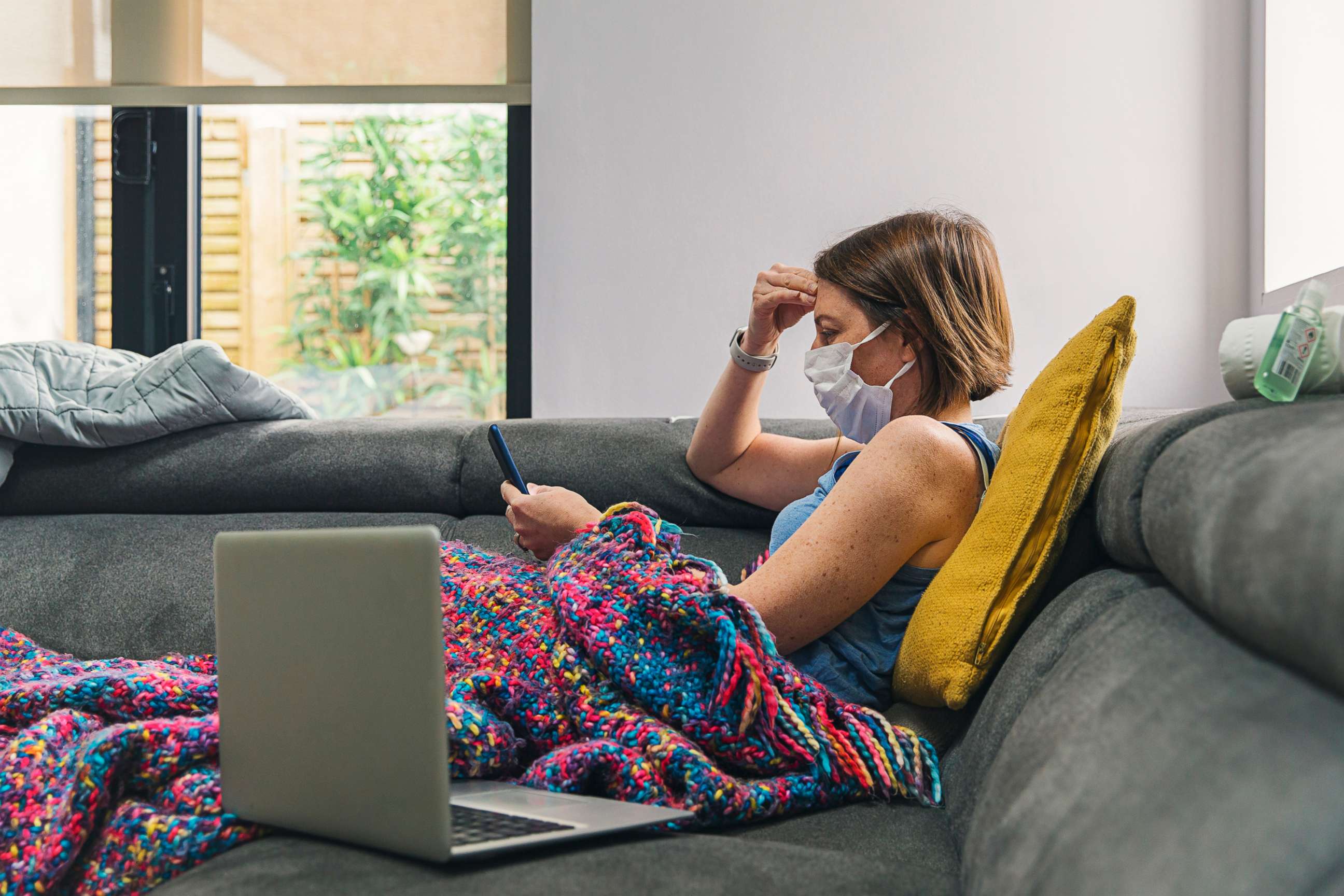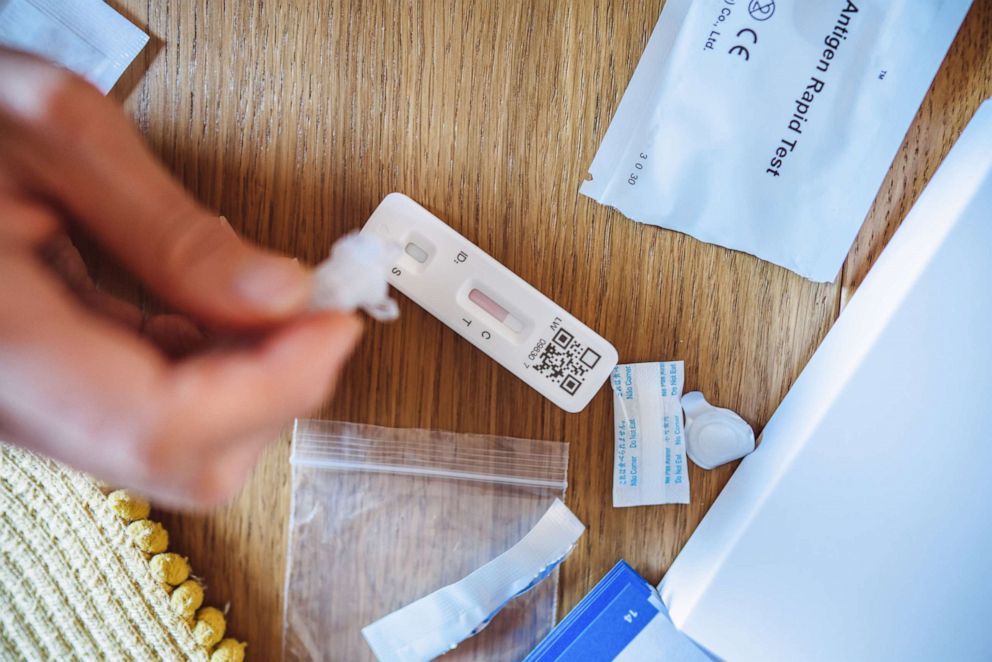'Mild COVID' isn't always mild: Tips for recovering at home
"The majority of the treatment ... is aimed at relieving symptoms."
It started with chills on New Year's Eve. Hoping a hot shower would help, Dr. Michael Henry stood there, freezing.
"I couldn't get the water hot enough," said Henry, 65, recalling his first symptom. Overnight, he developed a sore throat, followed by fatigue and a cough. A day or two later, something really scared him while taking his first deep breath of the morning.
"It felt like I was sucking through a straw," he remembered. "This is not normal."

A home antigen test confirmed his suspicions almost immediately. Being fully vaccinated and boosted against COVID-19 helped keep him out of the hospital, but just because his symptoms weren't bad enough for hospitalization doesn't mean his recovery was a walk in the park -- especially when it's harder to walk.
A pain medicine and rehabilitation specialist with a practice in his hometown of Sacramento, California, Henry joined the growing list of Americans dealing with the virus at home.
Millions of other vaccinated Americans have had to deal with "mild COVID" -- not sick enough to require hospital-level treatment, but not asymptomatic. As cases climb in the U.S., focus remains on the sickest and the nation's overstretched hospitals and health care workers, but many others are suffering at home and discovering mild COVID to be a major disruptor.

"Mild is not always so mild," said Dr. William Schaffer, a professor of medicine at Vanderbilt University and medical director of the National Foundation for Infectious Disease. He warns that people who attempt going about their days as they normally would -- doing laundry, mowing the lawn, cooking dinner -- may risk overdoing it.
"If you're not sick enough to go to the hospital, there is a tendency to fill some of those roles," he added.
For those home with COVID-19 or those caring for loved ones at home, Dr. Jay Bhatt of Family Christian Health Center in Chicago recommends plenty of rest, fluids and over-the-counter pain relievers as directed.
"The majority of the treatment of mild to moderate COVID is aimed at relieving symptoms," added Bhatt, an internist and geriatrician. For some people, he added, other measures that help include lying on your stomach instead of your back to improve oxygen flow while resting, taking zinc to limit replication of the virus and getting vitamin C to boost one's immune system.
The Centers for Disease Control and Prevention, in addition to measures described above, emphasizes staying in touch with one's doctor and reporting if symptoms worsen. Some with the virus may require specific medications or IV fluids.
Elderly people or anyone with existing conditions -- diabetes, obesity, asthma, heart failure, chronic lung disease and HIV among them -- should contact their physicians immediately upon having even mild symptoms, Bhatt said.
"Those are things that then put people in the hospital," Bhatt warned.
Henry, who's continuing to recover, has three words for others looking to stay out of the hospital: "Get the vaccine."
Robert Rowe, M.D., M.B.A., is a preventive medicine resident at the University of North Carolina and a contributor to the ABC News Medical Unit.